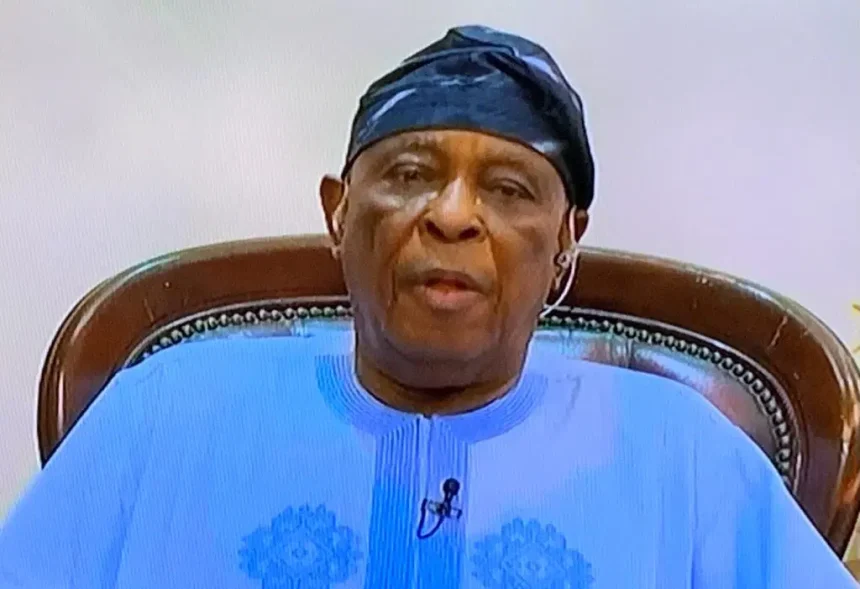Former Ogun State Governor, Olusegun Osoba, has offered insights into why outgoing Presidents and Governors frequently refrain from supporting their deputies’ efforts to succeed them.
Speaking at the 3rd Annual Conference of the Forum of Former Deputy Governors of Nigeria in Abuja, Osoba cited distrust and suspicion as key reasons for this global phenomenon, including in Nigeria.
In his remarks during the conference, which is themed “Strategic Solutions for Good Governance, Food Security, and Sustainable Growth in Nigeria,” Osoba emphasized that this issue extends beyond Nigeria. “It is most unfortunate. It is not just in Africa. It happens all over the world,” he said, referencing the relationship between former U.S. President Bill Clinton and his Vice President, Al Gore. “Al Gore contested the presidency but did not get Clinton’s full support because he feared Clinton might be a liability to his campaign.”
According to Osoba, while it is rare for deputies to succeed their bosses, there remain opportunities for such individuals in Nigeria. “The array of young and passionate leaders we see at this conference gives us confidence that one day, one of them will emerge as the president of this country,” he stated.
Osoba also expressed concern about the increasing cases of governors orchestrating the impeachment of their deputies. When asked about the possibility of constitutional amendments to protect deputies from being undermined by their superiors, Osoba was skeptical, saying, “There is little anybody can do about it. If the State House of Assembly is friendly with the governor, he can attempt anything, including impeaching his deputy.”
He stressed that the key to resolving this issue lies in building better relationships between leaders and their deputies, rather than relying on legal measures. “It is not by law but by relationship. Cooperation between leaders is crucial,” he said.
In his address at the conference, Dr. Abdullahi Ganduje, National Chairman of the All Progressives Congress (APC), also commented on the complexities of the deputy role. He likened it to theological debates, saying, “Even in theology, God has no deputy because of its controversial nature. A leader does not determine his continuity in office. If a leader falls sick or dies, someone has to take over.”
Ganduje suggested that ongoing discussions and perhaps a constitutional review might eventually address some of the challenges faced by deputy governors. “Maybe certain paragraphs can be included in favor of deputy governors,” he concluded.





